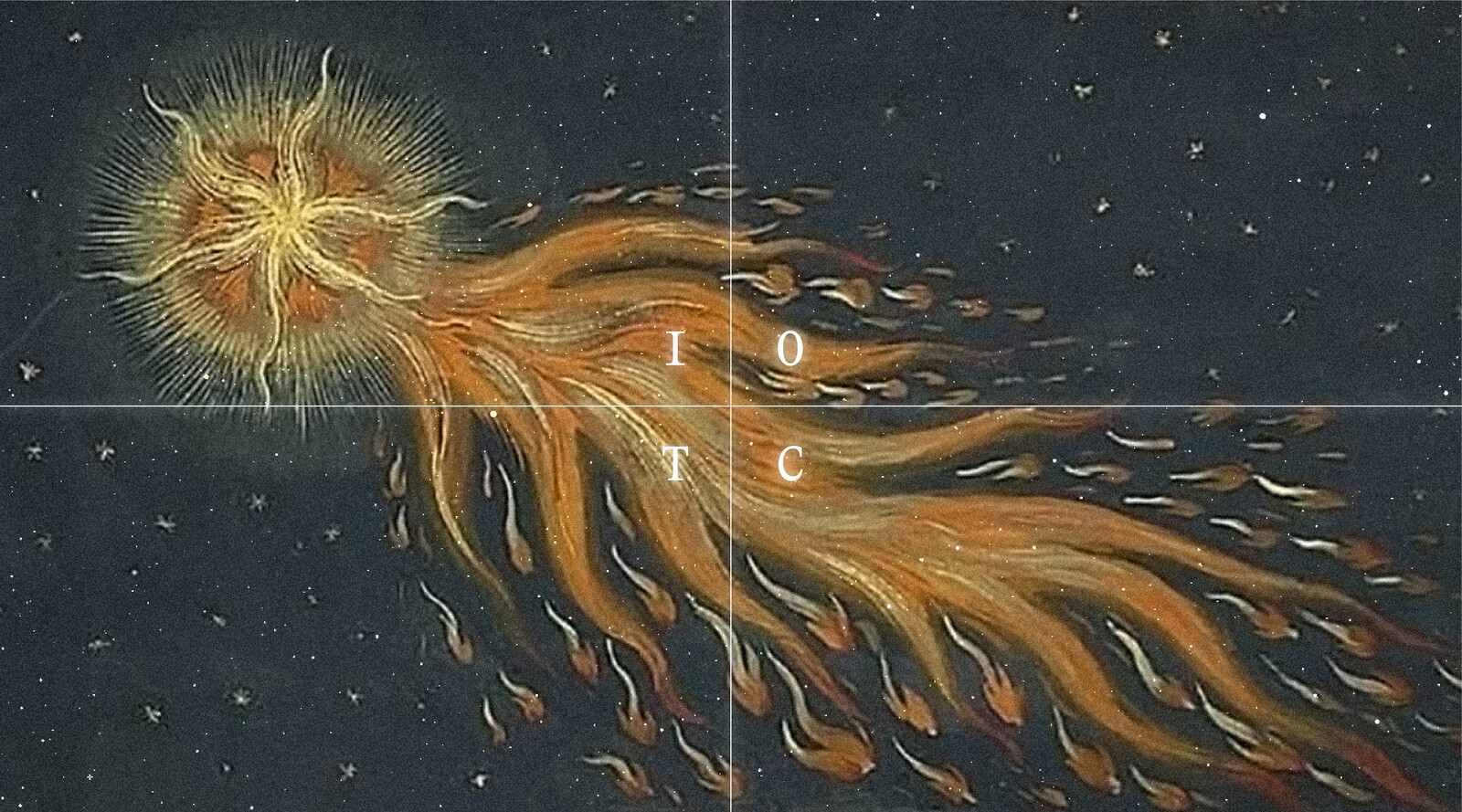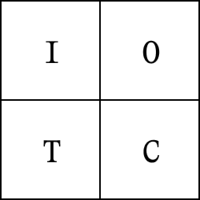The Institute of the Cosmos is pleased to present Cosmic Bulletin 2022, edited by Anna Gorskaya, with contributions from Alla Mitrofanova, Irina Zherebkina & Sergey Zherebkin, Alexey Ulko, Krëlex zentre, Kulshat Medeuova, Saodat Ismailova, Stanislav Ostrous, Rustem Begenov & Arseny Zhilyaev, Denis Sivkov, Denis Shalaginov, Michael Marder, Eugene Kuchinov, Anton Vidokle & Pelin Tan, and historical texts from Aleksandr Svyatogor and Sergey Kalmykov.
The Cosmic Bulletin is an online publication influenced by the philosophy of cosmism and its historical and contemporary manifestations. As part of the collective research project The Institute of the Cosmos, the Cosmic Bulletin seeks to propagate a series of radical imaginaries informed by a multitude of knowledge systems and sustained by collective experimentation.
Editor Anna Gorskaya notes in her Introduction that Cosmic Bulletin 2022 challenges the most pressing quandaries within cosmism’s far-reaching political and social matrix. The overall agenda and the specific texts of the Bulletin are moved with a persistent doubt about the domineering, paternalistic stance of traditional cosmism. Hence, Cosmic Bulletin 2022 looks for guidance from a variety of intellectual traditions that demand we replace the narrow binaries with the supremely complex, multiple, infinitely transformable formulas of a free material dynamics. One of the sources of inspiration here is a cosmist philosophy in its anarcho-biocosmist recension.
A historical text by Aleksandr Svyatogor provides a theoretical and contextual framework for the anarcho-biocosmist movement, while Alla Mitrofanova outlines Soviet philosophical debates of the 1920s and early ‘30s that sought to find a new kind of rationality. As Mitrofanova maps out, a number of Soviet physicists involved burgeoning theories of relativity in their attempts to redefine scientific and political objectivity.
Continuing the discussion in the political register, Irina Zherebkina & Sergey Zherebkin propose a radical reinvention of nationalism, while Alexey Ulko wrestles with the possible methodologies of decolonizing “Russian cosmism.” Krëlex zentre offers a script for a play that challenges the nation-state model of organizing humanity. Each of these texts complicates cosmism’s proclaimed universalism and strives to eclipse cosmism’s lingering paternalism.
Kulshat Medeuova and Saodat Ismailova both engage the history and collective memory of Baikonur, the city on the Syr Darya River that houses the world’s first spaceport. Medeuova makes record of a trip to the cosmodrome, which she sees as a “no-place,” characterized by the weight of scientific progress and geopolitics. Ismailova reflects on her ongoing investigation into the myth of Qorqyt, who is said to have discovered the secrets of immortality and flight. Taking the folkloric character as a guide, Ismailova attempts a rewriting of the history of the Kazakh steppe that opposes varying forces of oppression.
Amidst an era of global catastrophes, notions of the linear progression of history must necessarily be challenged and possible futures reimagined. Stanislav Ostrous contributes a photo essay of Kharkiv, Ukraine, ravaged by the perils of war. Documenting the senseless devastation, Ostrous maintains the conviction that other worlds are still possible.
Gorskaya writes, “Several contributions to the Bulletin are frank imaginings of the cosmist museum and the art of cosmist living, freed from the duty to serve as tools of a ‘total biopolitics.’ Simultaneously some texts here reveal contexts that present new, unexpected challenges to the anarcho-biocosmist agenda.” Indeed, Rustem Begenov & Arseny Zhilyaev discuss the inaugural Kazakhstan national pavilion at the 59th Venice Biennale, designed by ORTA Collective, and its blueprints for a future universal museum in Kazakhstan that is structured counter to the typical domineering museum model. Denis Sivkov speaks with Pyotr Druzhinin about his homemade museum of spaceship models housed in his Tallinn, Estonia, apartment, while Denis Shalaginov outlines and “grounds” an approach to the problem of immortality that differs from those described by Nikolai Fedorov and Aleksandr Svyatogor. Michael Marder continues the discussion by elucidating aspects of Svyatogor’s notion of subjectivity.
In a historical text from avant-garde artist Sergey Kalmykov, the project of art without death is voiced through a conception of the world as a ubiquitous woven pattern. Eugene Kuchinov speaks about an anarcho-biocosmism that encompasses a vast range of “elements”—crystals, volcanoes, animals, theorists—in conjunction with anarcho-biocosmism’s traditional “statelessness.” Cosmic Bulletin 2022 closes with an annotated script by Anton Vidokle & Pelin Tan. Merging text from the Epic of Gilgamesh and Valerian Muravyev’s Mastering Time, the filmmakers transpose the epic struggle for immortality onto a female Gilgamesh, signaling a reconsideration of narrative that extends back to prehistory.
We welcome you to dive into these topics with us, here.



